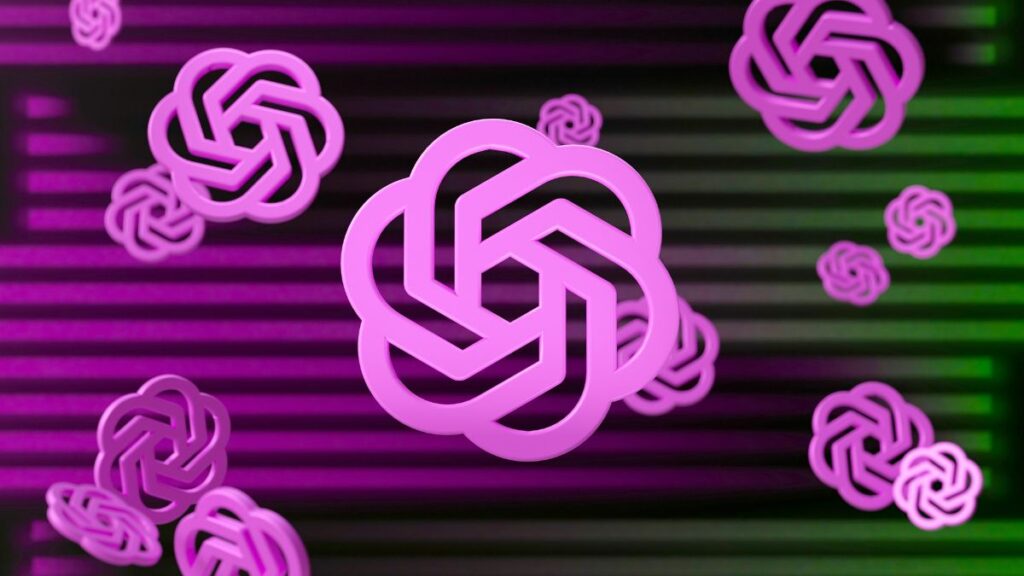
OpenAI announced on Tuesday that it has embarked on training a new flagship artificial intelligence model that is set to succeed GPT-4, the advanced technology currently powering its highly popular chatbot, ChatGPT. Based in San Francisco, OpenAI is recognized as one of the leading AI companies globally. In a detailed blog post, the company outlined its ambitious vision for the new model, which they expect to bring “the next level of capabilities.” This advancement is part of their broader mission to develop “artificial general intelligence” (AGI), a groundbreaking goal in AI research that aims to create a machine capable of performing any intellectual task that a human brain can accomplish.
Search
Recent Posts:
- OpenAI Brings ChatGPT to be used in WhatsApp: Here’s How It Works and What You Can Do To Use It.
- Realme 14x 5G: A Budget Smartphone With Premium Features.
- Exploring Apple Genmoji: A New Era of Custom Emoji Creation.
- 2024 United States Presidential Election: Donald Trump Declares Victory in 2024 Presidential Election
- Chancellor Olaf Scholz’s Visit to India: Advancing Indo-German Cooperation on Defense, Trade, and Regional Stability.
OpenAI’s New AI Model is Powering Future Innovations While Prioritizing Safety and Ethics
The new model is intended to serve as a powerful engine for a wide array of AI products. These include chatbots, digital assistants akin to Apple’s Siri, sophisticated search engines, and innovative image generators. The company’s efforts to create such a versatile and capable model reflect its determination to stay at the forefront of AI technology, driving the field forward with significant innovations.
To address the potential risks associated with these advancements, OpenAI also revealed the formation of a new Safety and Security Committee. This committee will explore and develop strategies to manage the risks posed by the new model and future technologies. OpenAI emphasized the importance of this initiative, stating, “While we are proud to build and release models that are industry-leading in both capabilities and safety, we welcome a robust debate at this important moment.” This statement underscores the company’s commitment to fostering a safe and ethical development environment for AI technologies.
OpenAI Leads AI Innovation Amidst Rising Ethical Concerns and Competitive Pressures
OpenAI’s rapid advancement in AI technology aims to outpace its competitors while simultaneously addressing the concerns of critics. Some critics argue that the rapid development of AI poses significant risks, including the spread of disinformation, the potential replacement of human jobs, and existential threats to humanity. The debate around these issues is vibrant and ongoing, with experts divided on the timeline for achieving AGI. Despite this uncertainty, leading technology companies such as OpenAI, Google, Meta, and Microsoft have steadily increased the power and sophistication of their AI technologies, making significant strides in the field.
Since its release in March 2023, OpenAI’s GPT-4 has been a cornerstone in the development of various software applications. This model enables chatbots and other software to answer questions, write emails, generate term papers, and analyze data with remarkable accuracy and fluency. Recently, an updated version of this technology was unveiled, which, although not yet widely available, boasts the ability to generate images and respond to questions and commands in a highly conversational voice. This update represents a significant leap forward in AI capabilities, reflecting OpenAI’s continuous innovation.
Scarlett Johansson Controversy Highlights Ethical Challenges of Advanced AI
Shortly after OpenAI showcased this updated version, known as GPT-40, it sparked a notable incident involving actress Scarlett Johansson. Johansson claimed that the voice used by GPT-40 sounded “eerily similar to mine.” She revealed that she had declined an offer from OpenAI’s CEO, Sam Altman, to license her voice for the product. Disturbed by the similarity, Johansson hired a lawyer and requested that OpenAI cease using the voice. In response, OpenAI stated that the voice in question did not belong to Johansson. This incident highlights the complexities and ethical considerations involved in developing advanced AI technologies that can closely mimic human attributes.
The development of technologies like GPT-40 involves extensive training processes. These models learn their skills by analyzing vast amounts of digital data, which includes sounds, photos, videos, Wikipedia articles, books, and news stories. The process of digital “training” can span months or even years, requiring immense computational resources and sophisticated algorithms. Once the training phase is completed, AI companies typically spend several more months testing and fine-tuning the technology to ensure it is ready for public use. This rigorous process is essential to produce reliable and effective AI models.
Legal Challenges and Ethical Considerations in OpenAI’s Quest for Advanced AI Development
In a notable legal development, The New York Times sued OpenAI and Microsoft in December, alleging copyright infringement related to AI systems. The lawsuit centers on the claim that these companies used news content without proper authorization during the training of their AI models. This case underscores the growing tensions between AI developers and content creators, highlighting the need for clear legal frameworks and ethical guidelines in the rapidly evolving field of artificial intelligence.
OpenAI’s journey to develop a new flagship AI model is a testament to its leadership and innovative spirit in the AI industry. As the company strives to achieve AGI, it continues to navigate the complex landscape of technological advancement, ethical considerations, and competitive pressures. The formation of the Safety and Security Committee and the ongoing legal challenges are indicative of the broader challenges faced by the AI community. Nevertheless, OpenAI remains committed to pushing the boundaries of what is possible with AI, aiming to create technologies that are not only powerful and versatile but also safe and beneficial for society.
To read more topics, please visit: https://insightfulbharat.com






